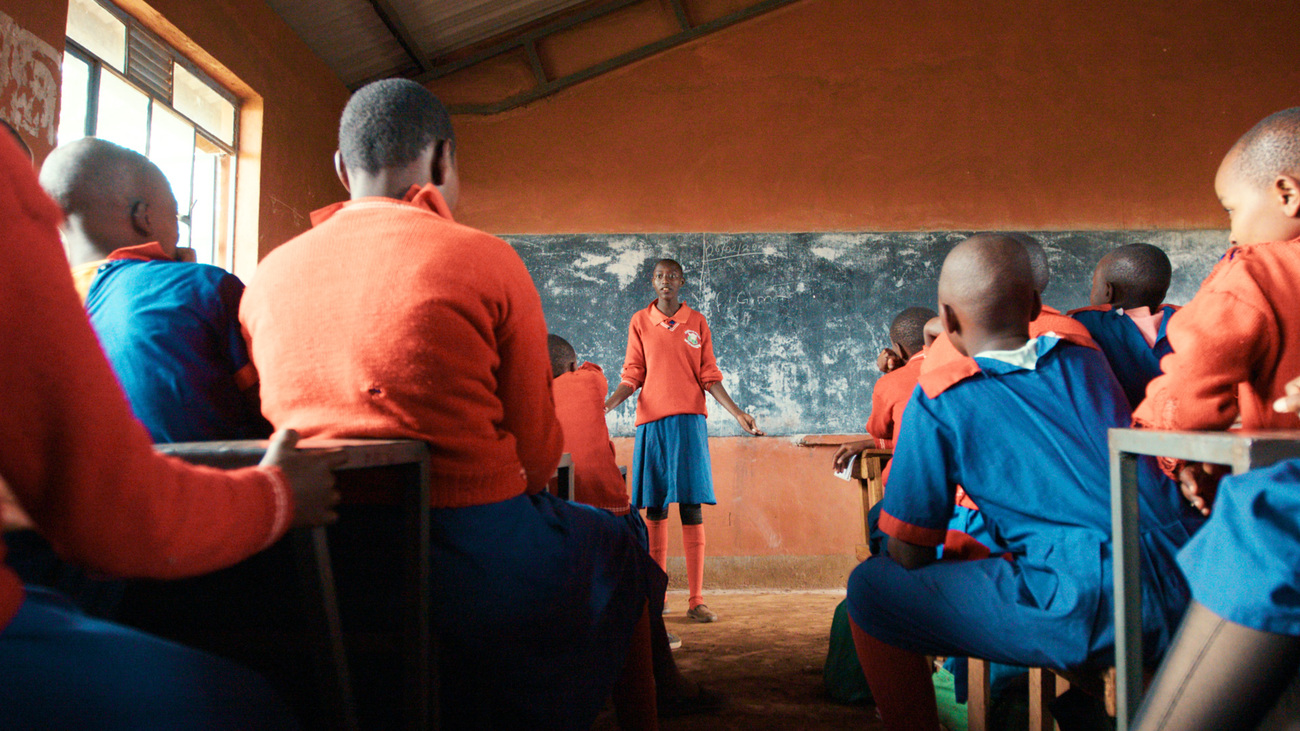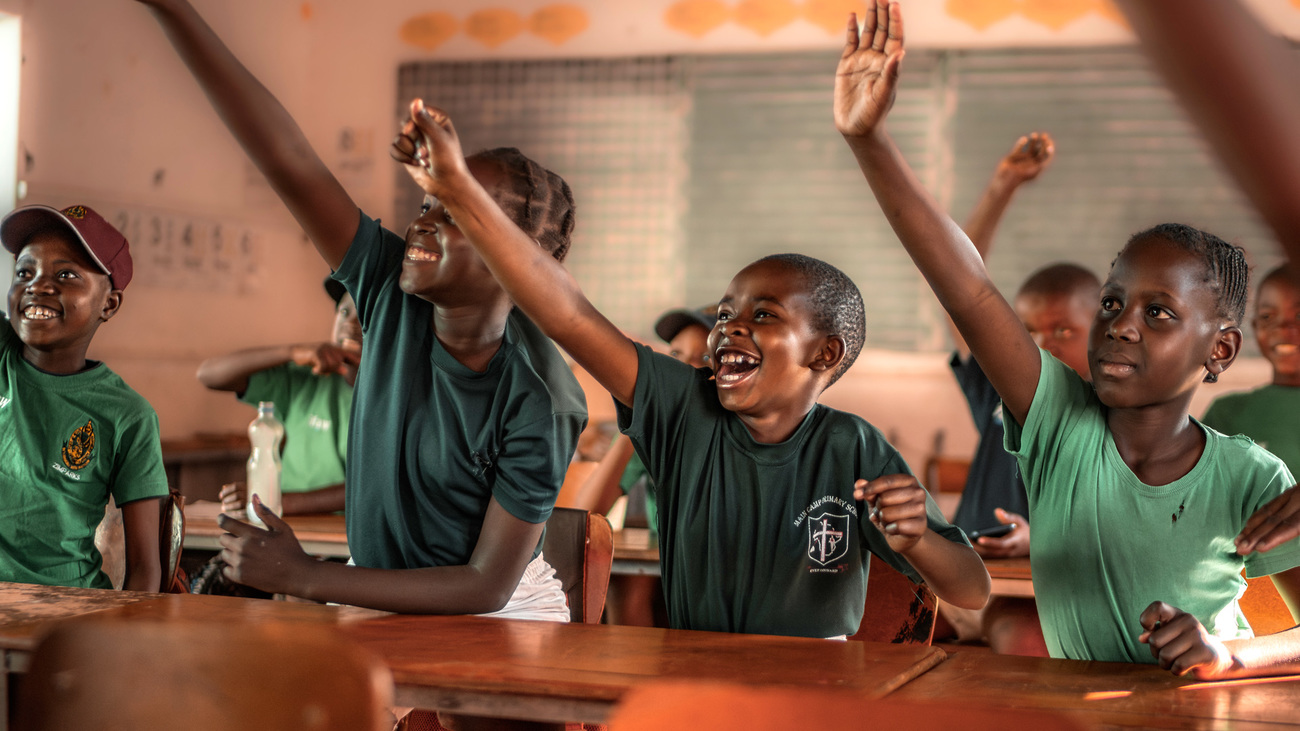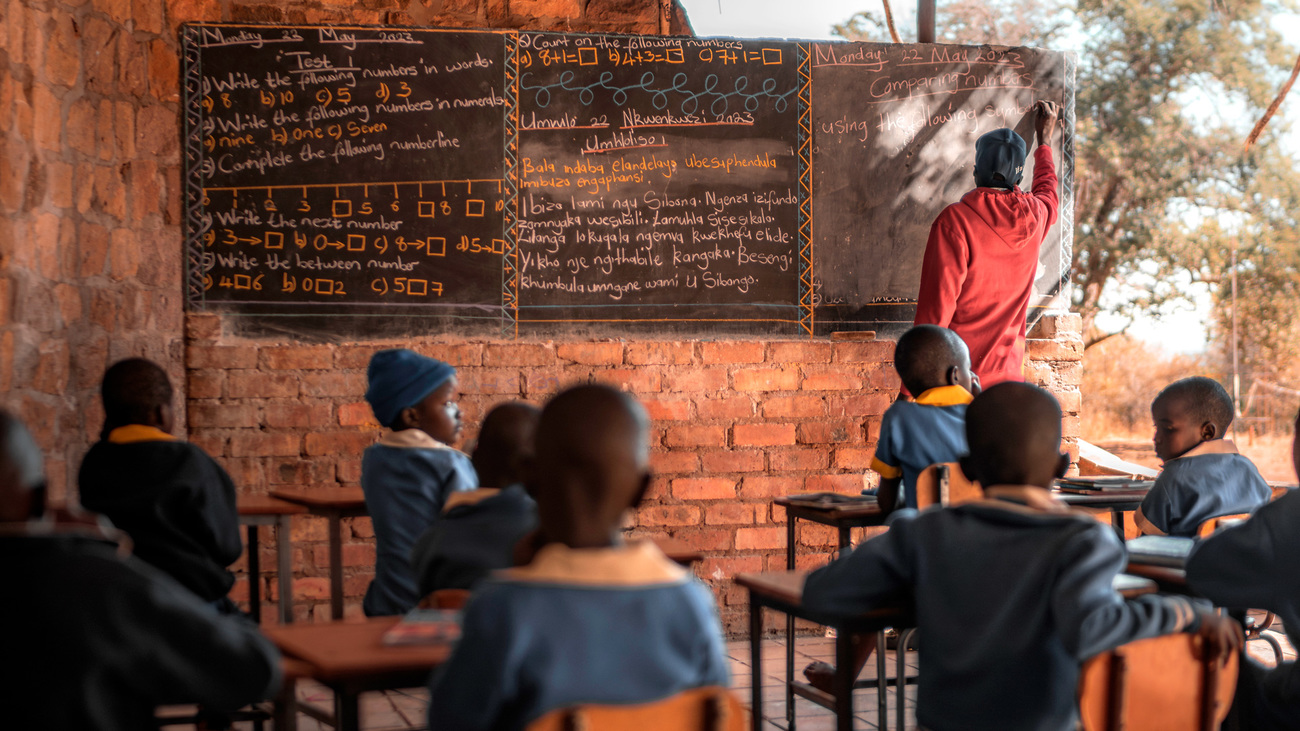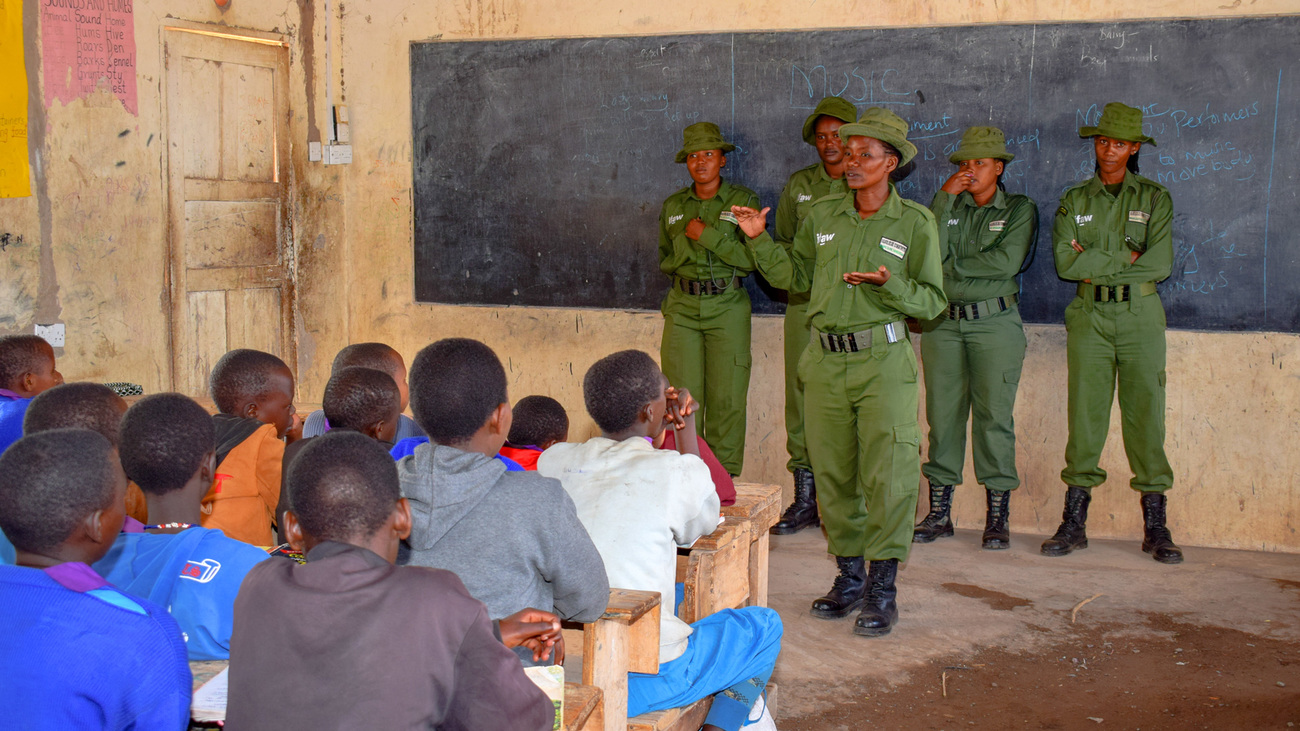Phillip Kuvawoga
Bringing Africa’s next generation into the conservation conversation
Bringing Africa’s next generation into the conservation conversation
Imagine growing up on the border of a protected wilderness area in East or southern Africa. You probably see zebras, impalas, or kudus on your way to school. These animals ordinarily don’t harm people, but what about larger animals like elephants and predators such as lions? The landscape hosts healthy populations of these animals, and they can pose dangers to children if their paths cross.
Elephants and other wildlife must roam vast areas to find enough food and water. However, as they move beyond the boundaries of protected areas, they are more likely to interact with—and even come into conflict with—local communities. That’s why IFAW’s Room to Roam initiative embraces community involvement in East and southern Africa as the key to conservation success. One of the most influential groups we work with is children as young as eight years old.
Why we need to engage young people in conservation
If you look at the geography where we work, most of the youth come from difficult backgrounds and disadvantaged families. They live close to nature and rely on it for sustenance. Usually, their only interaction with wildlife is when it wanders out of the park and destroys their crops or eats their livestock. As they get older, if they’re unemployed, they can be drawn to illegal activities such as poaching, so their relationship with the park they live next to is not always harmonious.
Here’s the stark reality: If we aren’t involving young people in local wildlife issues, it could mean they are making decisions that cause harm to wildlife and the community in general.

In the case of young people growing up on the edge of protected areas, if they don’t see the value in protecting their local biodiversity, they are less inspired to be future stewards and champions for nature. Despite all the inherent dangers, poaching and other forms of wildlife crime become more attractive when people have very few other resources or opportunities to help their families survive. And when you combine that with a lack of understanding of the vital role biodiversity plays in our survival as humankind, the consequences could be dire.
Megafauna like elephants are critical allies in our fight against climate change. If we don’t give young people the tools they need to make the right decisions, we will not just fail animals and people, but also the planet.
Our role as experienced conservationists
At IFAW, we believe the aspirations of youth should drive the way.

So, what should our role as more experienced conservationists be? We must generate young people’s interest in conservation; we must build their capacity to make the right decisions about resource management; and we must develop a cadre of young conservationists who are conscious of the linkages between humans and the natural world.
We want to inspire kids to dream and map out the future they want to see and then develop the tools they need to make it a reality. To this end, we run programmes to create local champions in conservation, protection, and sustainable use of Africa’s natural heritage.
How we develop young conservation leaders
Our Environmental Stewards Programme has been running since 2019. Every year, we work with at least 315 children aged 8 to 13 who are students at 21 schools in the 10 buffer communities of Zimbabwe’s Hwange National Park.

We provide engaging educational resources and experiences for students to develop a sense of ownership and understanding of the dynamics between people, wildlife, and environmental interaction from a very young age. Through outdoor nature education and classroom-based learning, students develop their sense of how to care for and work with nature, becoming conservation ambassadors in their communities.
The programme also pays tuition fees for 255 primary school children, has given 120 bicycles to students who walk more than five kilometres to reach school, and provides schools with hundreds of textbooks. We also provide conservation-themed supplementary materials and teacher training and support heritage and artistic activities, including poetry, folklore, choral music, films, and dances that ensure interactive, playful learning. Our engagement with local community leaders and senior citizens ensures intergenerational knowledge and skills transfer based on indigenous knowledge values and norms.
Why these programmes inspire generations
One of the most exciting aspects of the programme for students is the guided tours into Hwange National Park for experiential ecological learning. They become enthusiastic about the work—especially the first-timers who see the rangers in their uniforms and experience the vastness of the park and the scenic environment. From the teachers, we hear that students can grasp the conservation lessons better because they see and experience wildlife and nature differently.
From personal experience, I know how these experiences can transform young people’s understanding of the world around them. My father gave 42 years of his life as a scout, ranger, and game warden in Zimbabwe. I grew up with a watering hole close to our park house in Hwange National Park, swimming in the Mutorahuku River, and herding cattle in Churumanzu. Seeing and hearing about the work he did was inspiring. That’s why I joined the Zimbabwe Parks and Wildlife Authority after university. When we instill a love of nature in children, it can be passed on for generations. My daughter, who is in secondary school, wants to be a veterinarian.
We do similar work in Malawi, supporting school kids and setting up teachers’ conferences to exchange knowledge and skills. In Kenya, we run a scholarship programme for Olgulului–Ololarashi Group Ranch children, whose land borders Amboseli National Park. The scholarships take them through secondary, diploma, and university education.

For now, our programme targets kids in the buffer zones of protected areas, but we are discussing the idea of supporting exchanges between rural and urban schools. One day we may also set up international exchanges to have a more powerful programme of knowledge sharing, but we would need resources as we expand.
The unique perspective young people bring
We celebrate the young demographic of our continent, which is projected to expand rapidly in the coming years. These young people ask hard questions and try to shape their futures. They have a unique and powerful voice to change the narrative and advocate for conscious environmentalism. They need conservation to be smart, relevant, and attractive, and they are tech savvy enough to reimagine and transform it.
If we want to develop climate-resilient landscapes and communities, there’s no two ways about it: Young people cannot be an afterthought—if they are, we are destined to fail. They must be at the centre of decision-making processes for wildlife conservation to truly succeed.
Related content
Every problem has a solution, every solution needs support.
The problems we face are urgent, complicated and resistant to change. Real solutions demand creativity, hard work and involvement from people like you.